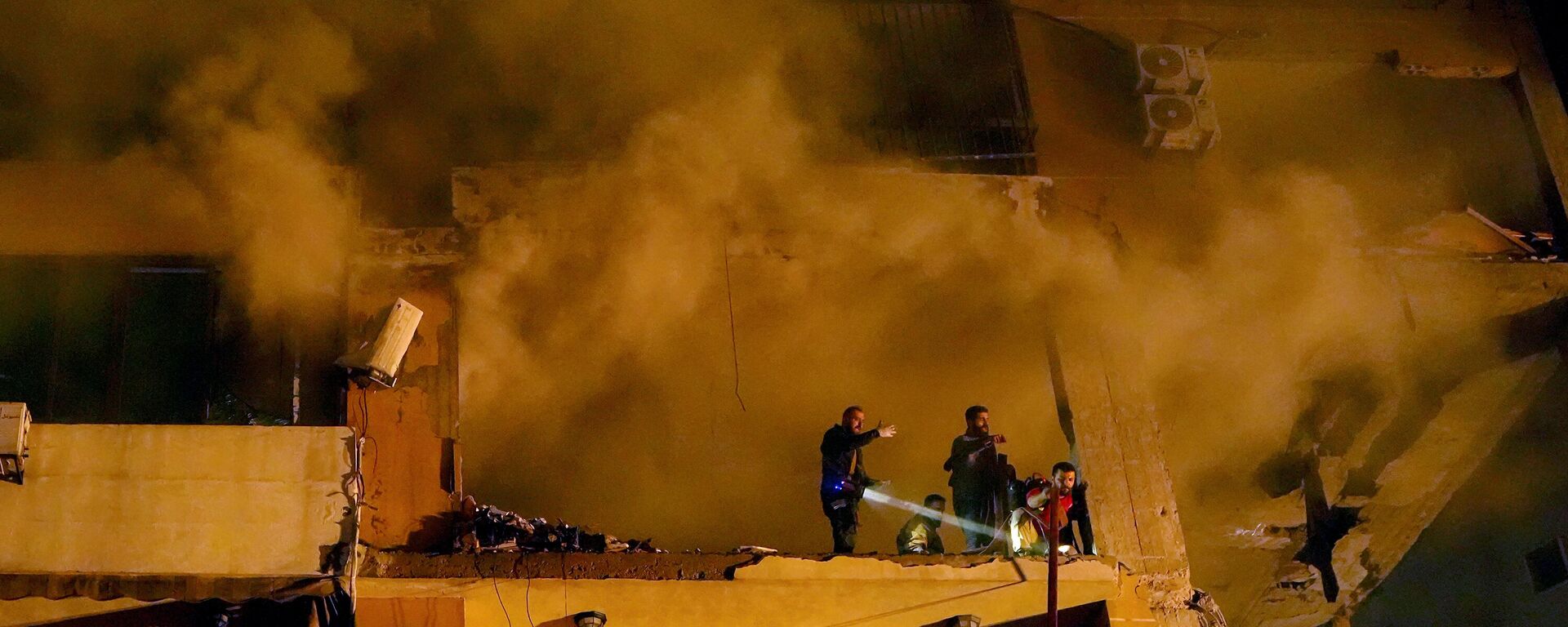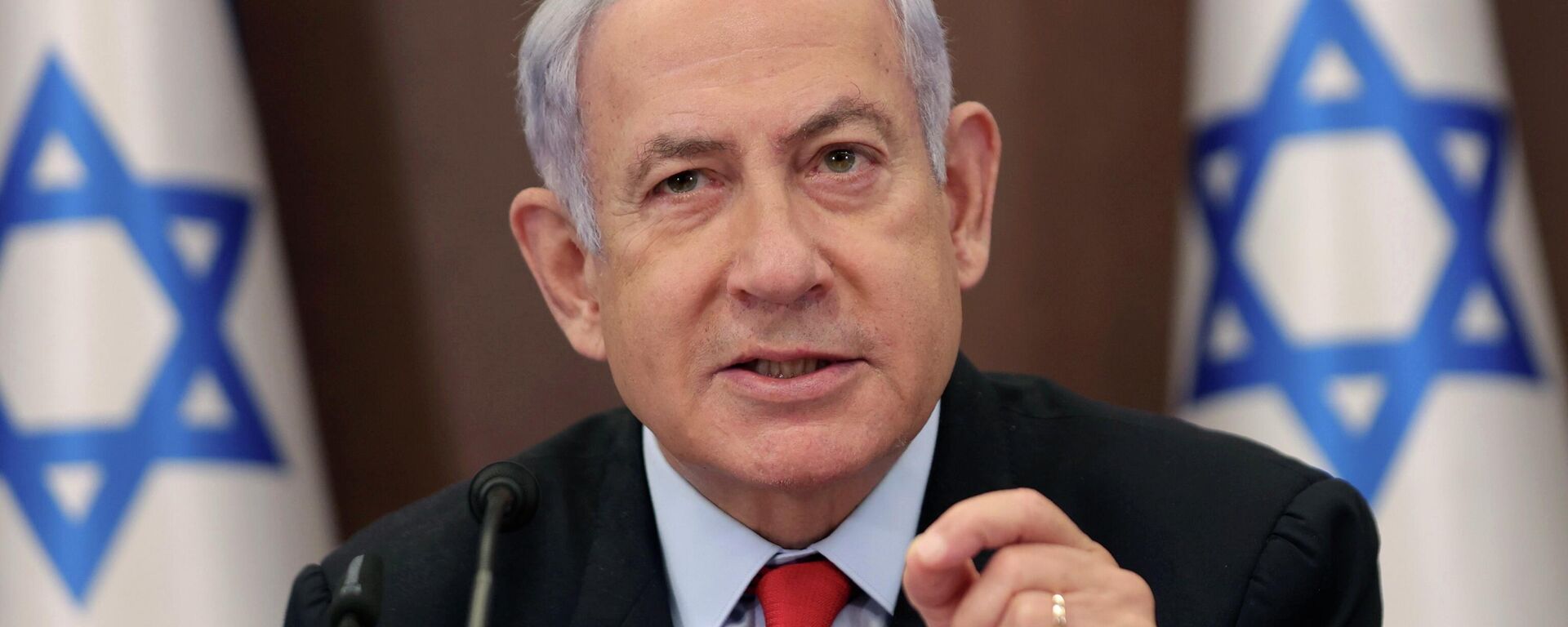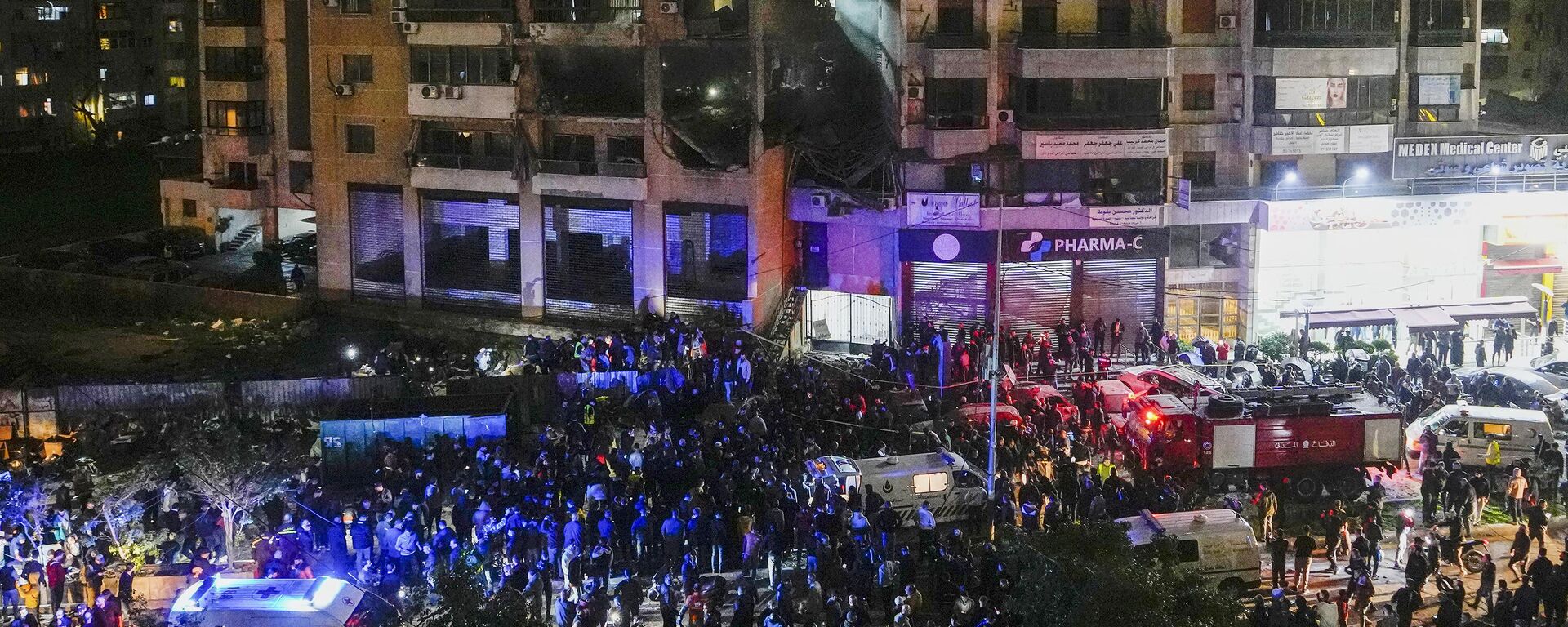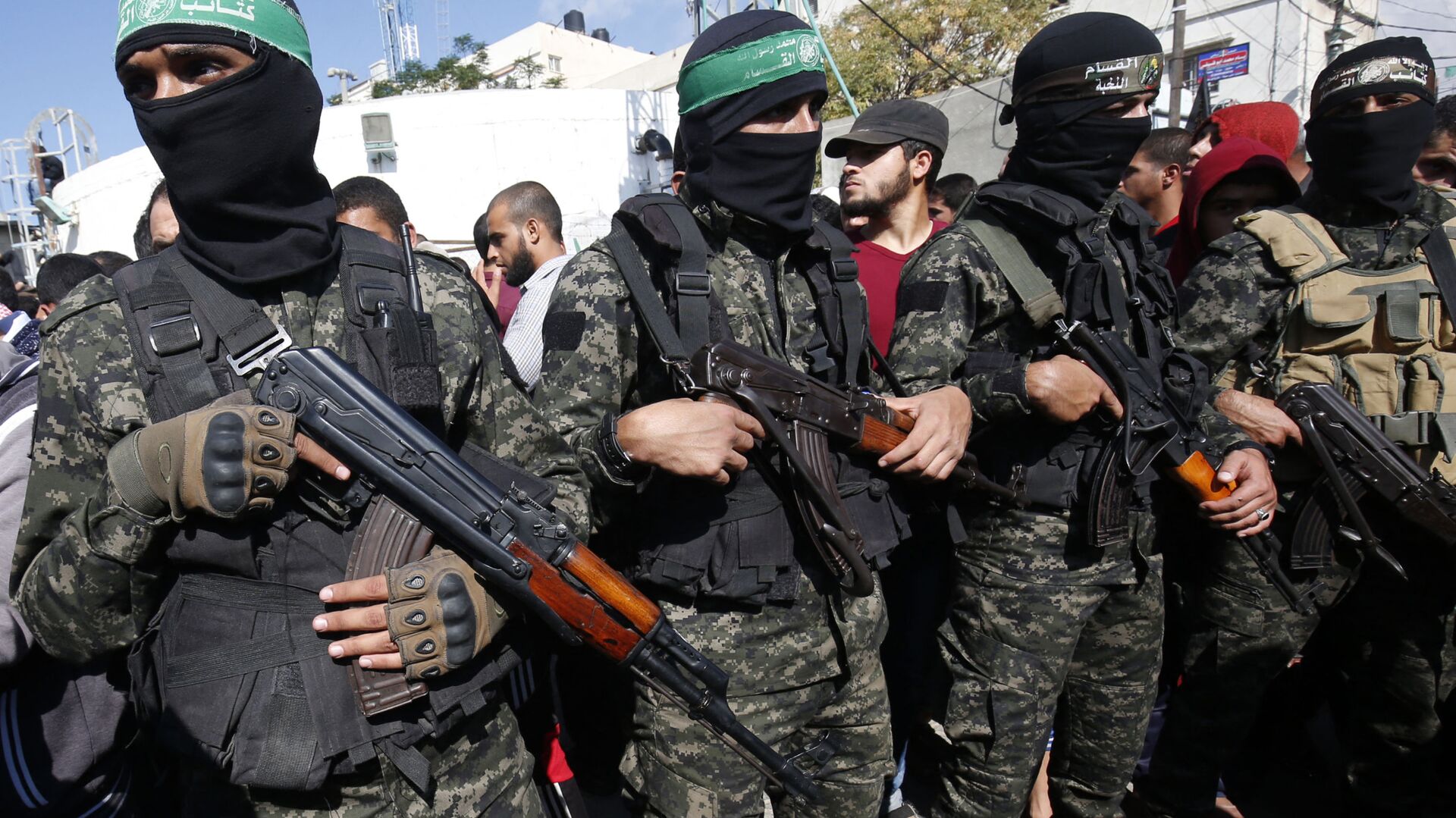https://sputnikglobe.com/20240103/how-could-beirut-killing-of-hamas-deputy-leader-change-gaza-war-1115962514.html
How Could Beirut Killing of Hamas Deputy Leader Change Gaza War?
How Could Beirut Killing of Hamas Deputy Leader Change Gaza War?
Sputnik International
An explosion claimed the life of Saleh al-Arouri, deputy head of the political bureau of Hamas. How could al-Arouri's assassination affect the Gaza war and US-Israeli relations?
2024-01-03T16:10+0000
2024-01-03T16:10+0000
2024-01-03T16:10+0000
middle east
world
palestine-israel conflict
opinion
us
palestine
hamas
lebanon
beirut
hezbollah
https://cdn1.img.sputnikglobe.com/img/07e5/05/14/1082944797_0:181:2996:1866_1920x0_80_0_0_d402c9a414e3ab33852867a243e721b5.jpg
A senior leader of the Palestinian militant group Hamas was killed in an Israeli drone strike on January 2 in the south of the Lebanese capital Beirut, triggering concerns of potential escalation in the Gaza war.Tel Aviv has not publicly taken responsibility for the targeted assassination, however one Israeli and two US officials confirmed the Jewish state was behind the attack, according to Axios.Targeted killings of leaders of movements designated as terrorist organizations by Israel are Tel Aviv's decades-long practice. Under this strategy, Israel takes out individuals it believes are involved in the planning and carrying out of activities against it in order to prevent further attacks and minimize collateral damage, including among Palestinians.Furthermore, a paper by the research department of the Bank of Israel (BOI) claimed back in January 2005 that "the market reacts strongly to assassinations of senior members in Palestinian terrorist organizations: it declines following attempts to assassinate political leaders but rises following attempts to assassinate military ones."The Wall Street Journal reported on December 1 that Israel's intelligence services are preparing to kill Hamas leaders around the world when Tel Aviv's Gaza war winds down. Several days later, Yossi Melman, an Israeli investigative journalist and bestselling author of non-fiction books on the Israeli intelligence community, argued in his op-ed for Haaretz that 50 years of Israeli assassinations of Hamas and Hezbollah leaders proves "they're not a solution.""Targeted killings of terrorist leaders haven't debilitated those groups, but alas, Israel's security establishment suffers from groupthink," the preamble to the op-ed argued.Meanwhile, on January 3, David Barnea, the head of the Israeli intelligence agency Mossad, issued a threat to those involved in the October 7 attack on Israel. "The Mossad, today like 50 years ago, is committed to settling accounts with the murderers who raided the Gaza envelope on 7 October, with the planners and their envoys," said Barnea, adding that every Arab who participated directly or indirectly in the massacre of 7 October "will bear responsibility."Al-Arouri, 57, was the deputy chief of Hamas' political bureau and a founding commander of its military wing, the Izz ad-Din al-Qassam Brigades. According to the New York Times, al-Arouri was accused of masterminding attacks on Israel and had helped establish closer ties between Hamas and Hezbollah, the Shiite Lebanese militia. After his election as Hamas' political bureau's deputy chief in 2017, al-Arouri traveled to Tehran to bolster relations with Iran. In recent years, he spent much time in Beirut, serving as a kind of Hamas ambassador to Hezbollah, as per NYT.Previously, al-Arouri was accused of plotting the kidnapping of Israeli teenagers as well as overthrowing Mahmoud Abbas, the president of the Palestinian Authority (PA). He also came on Washington's radar in 2015 with the US State Department designating him as a "Specially Designated Global Terrorist" and offering up to $5 million for information on his whereabouts.However, after al-Arouri was killed, some US media reports claimed that the Washington establishment condemned the Israeli move. Per the Walla news site, the Netanyahu government did not provide the Biden administration with advance notice of the strike in Beirut that killed the deputy chief of Hamas' political bureau.The expert went on to say that the "US will continue to support Israel, including its military actions as it finds it increasingly difficult to politically or economically contain Iran's expanding influence in the region."On January 3, at least 103 were killed in Iran as a powerful blast hit a procession attending a memorial event for Iran's top commander Qassem Soleimani, who was killed in a US drone strike in 2020 in the southern city of Kerman. No one has yet claimed responsibility for the attack.Commenting on the recent developments, Salamey did not rule out that the Gaza conflict could expand and spill over into Lebanon and elsewhere "at a level of higher intensity".
https://sputnikglobe.com/20240102/two-commanders-of-hamas-military-wing-killed-in-beirut-blast-as-gaza-conflict-escalates-1115953091.html
https://sputnikglobe.com/20231123/netanyahu-says-instructed-israels-mossad-to-act-against-hamas-leaders-wherever-they-are-1115153858.html
https://sputnikglobe.com/20240103/lebanon-to-file-complaint-with-un-security-council-against-israel---govt-1115956089.html
palestine
lebanon
beirut
iran
israel
Sputnik International
feedback@sputniknews.com
+74956456601
MIA „Rossiya Segodnya“
2024
News
en_EN
Sputnik International
feedback@sputniknews.com
+74956456601
MIA „Rossiya Segodnya“
Sputnik International
feedback@sputniknews.com
+74956456601
MIA „Rossiya Segodnya“
beirut, saleh al-arouri, al-arouri's assassination, israel, israel-hamas war, hezbollah, gaza war, the gaza strip, palestinian militants, mossad, targeted killings
beirut, saleh al-arouri, al-arouri's assassination, israel, israel-hamas war, hezbollah, gaza war, the gaza strip, palestinian militants, mossad, targeted killings
How Could Beirut Killing of Hamas Deputy Leader Change Gaza War?
An explosion claimed the life of Saleh al-Arouri, deputy head of the political bureau of Hamas. How could al-Arouri's assassination affect the Gaza war and US-Israeli relations?
A senior leader of the Palestinian militant group Hamas
was killed in an Israeli drone strike on January 2 in the south of the Lebanese capital Beirut, triggering concerns of potential escalation in the Gaza war.
Tel Aviv has not publicly taken responsibility for the targeted assassination, however one Israeli and two US officials confirmed the Jewish state was behind the attack, according to Axios.
"Evidently Israel is escalating the conflict in an effort to drift attention from its domestic crises and as a desperate act to proclaim some military wins," Dr. Imad Salamey, associate professor of political science and international affairs at the Lebanese American University, told Sputnik.
"[The] Israeli assassination of al-Arouri in Beirut has shifted the pattern of this conflict toward target killings and may very well expand Israeli bombardments of targets in Syria to those in Lebanon," he added.
Targeted killings of leaders of movements designated as terrorist organizations by Israel are Tel Aviv's decades-long practice. Under this strategy, Israel takes out individuals it believes are involved in the planning and carrying out of activities against it in order to prevent further attacks and minimize collateral damage, including among Palestinians.

2 January 2024, 20:55 GMT
Furthermore, a
paper by the research department of the Bank of Israel (BOI) claimed back in January 2005 that "the market reacts strongly to assassinations of senior members in Palestinian terrorist organizations: it declines following attempts to assassinate political leaders but rises following attempts to assassinate military ones."
The Wall Street Journal reported on December 1 that Israel's intelligence services are preparing to kill Hamas leaders around the world when Tel Aviv's Gaza war winds down. Several days later,
Yossi Melman, an Israeli investigative journalist and bestselling author of non-fiction books on the Israeli intelligence community, argued in his op-ed for Haaretz that 50 years of Israeli assassinations of Hamas and Hezbollah leaders proves "they're not a solution."
"Targeted killings of terrorist leaders haven't debilitated those groups, but alas, Israel's security establishment suffers from groupthink," the preamble to the op-ed argued.

23 November 2023, 01:35 GMT
Meanwhile, on January 3, David Barnea, the head of the Israeli intelligence agency Mossad, issued a threat to those involved in the October 7 attack on Israel. "The Mossad, today like 50 years ago, is committed to settling accounts with the murderers who raided the Gaza envelope on 7 October, with the planners and their envoys," said Barnea, adding that every Arab who participated directly or indirectly in the massacre of 7 October "will bear responsibility."
Al-Arouri, 57, was the deputy chief of Hamas' political bureau and a founding commander of its military wing, the Izz ad-Din al-Qassam Brigades. According to the New York Times, al-Arouri was accused of masterminding attacks on Israel and had helped establish closer ties between Hamas and Hezbollah, the Shiite Lebanese militia.
After his election as Hamas' political bureau's deputy chief in 2017, al-Arouri traveled to Tehran to bolster relations with Iran. In recent years, he spent much time in Beirut, serving as a kind of Hamas ambassador to Hezbollah, as per NYT.
Previously, al-Arouri was accused of plotting the kidnapping of Israeli teenagers as well as overthrowing Mahmoud Abbas, the president of the Palestinian Authority (PA). He also came on Washington's radar in 2015 with the US State Department designating him as a "Specially Designated Global Terrorist" and offering up to $5 million for information on his whereabouts.
However, after al-Arouri was killed, some US media reports claimed that the Washington establishment condemned the Israeli move. Per the Walla news site, the Netanyahu government did not provide the Biden administration with advance notice of the strike in Beirut that killed the deputy chief of Hamas' political bureau.
"The US criticizes Israeli military adventures in fear of shifting the conflict into a region-wide war that the US becomes directly involved," Salamey said. "US bases in Syria and Iraq may become targets. Nonetheless, the US administration would be hesitant to oppose Israel action as elections draw near and politicians seek pro-Israeli votes."
The expert went on to say that the "
US will continue to support Israel, including its military actions as it finds it increasingly difficult to politically or economically contain Iran's expanding influence in the region."
On January 3, at least 103 were killed in Iran as a powerful blast hit a procession attending a memorial event for Iran's top commander Qassem Soleimani, who was killed in a US drone strike in 2020 in the southern city of Kerman. No one has yet claimed responsibility for the attack.
Commenting on the recent developments, Salamey did not rule out that the Gaza conflict could expand and spill over into Lebanon and elsewhere "at a level of higher intensity".
"However, at this time both sides of the conflict consider the cost of an open confrontation much higher than any political win to attain," Salamey concluded.

3 January 2024, 03:22 GMT





